
A New Year is born !!
The past year and a half have been a whirlwind of difficulties but we Sherwoodians have come out of it victorious. Our school has once again regained it’s previous glory, full of enthusiastic children and determined teachers. As this year comes to an end, we gear up to welcome the new year and the first thing that pops up in our minds are resolutions ! And along with this the struggle to keep the promises we make to ourselves at the beginning of the year. As the year progresses we tend to forget them altogether.
Here are seven star tips to help you stay committed to your resolutions:
Being realistic helps us to get closer to completing our goal with efficiency and satisfaction.
Setting smaller goals will maintain our interest in the long run.
It always helps to flash a picture of the outcome in our head once in a while so that we are motivated all throughout.
To get started on achieving a goal we are inclined to change some habits. What we don’t realise is that by making small changes in our routine we are turning into a flexible person to take on all the challenges life throws at us!
Sometimes having the equipment that fits the frame of our goal might just be the right antidote to motivate us.
Instead of setting stereotypical goals like fitness and time management, discovering a new hobby might spice things in your monotonous routine
This is a very important tip. Let us make sure to give ourself a pat on the back each time we reach a goal. We’ll need all the positive energy to keep going!
Let us grab the opportunity to start afresh. We all should use this opportunity to stir some positive vibes and celebrate. Cheers to a clean slate and new beginnings!
- Anvitha Chaganti, XII
Padma Shri is the fourth-highest civilian award awarded to citizens of India in recognition of their contribution in various activities including arts, education, industry, literature, science, sports, medicine, social service and public affairs. It is awarded by the Government of India every year on India's Republic Day. This year's ceremony was held at the Rashtrapati Bhavan on October 8 and October 9 to honour 102 recipients of the Padma Shri awards. But out of them all, we'll focus on these inspiring four:
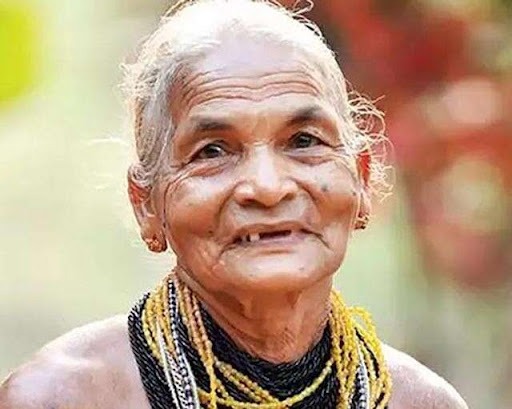
Tulsi Gowda is a 77 years old Indian environmentalist, has planted more than 30,000 saplings and looks after the nurseries of the Forest Department. Although she didn't have any sort of formal education, she had always been passionate towards preserving the environment. She has the ability of recognising the parent tree of every species of trees, due to which she's known as 'encyclopaedia of forest'. We all know how important it is to preserve and protect our environment, and all of us should try to imbibe Tulsi Gowda's love towards the environment.
2020 Padma Shri recipient Harekala Hajabba is an Indian social activist and orange vendor. On a normal day while he was selling oranges at a bus stop, a foreigner asked him the price of the oranges. As Hajabba wasn't educated because of poverty, he didn't understand what the foreigner was asking. He decided that the children of his village should not go through the same things he did, and thus began his long yet rewarding journey of building a school. Harekala Hajabba is considerative towards his village's youth and although he did not have a store of wealth, he saved up money and collected funds and built a school in his village.
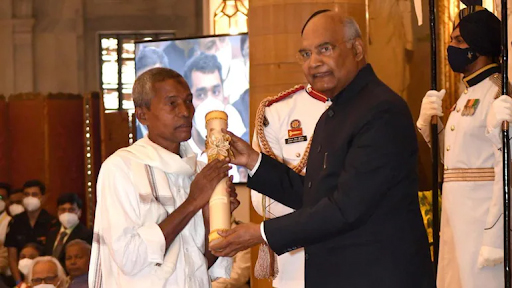
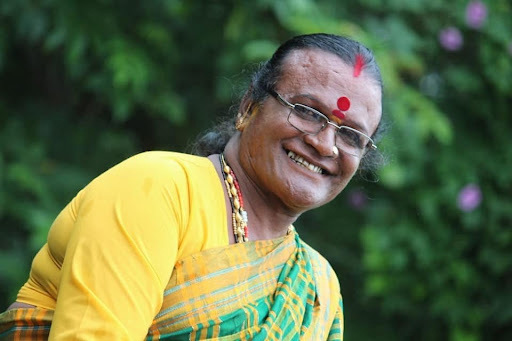
Manjamma Jogathi (born Manjunatha Shetty), is an Indian Kannada theatre actress, singer and dancer of Jogathi Nritya, a folk dance form of North Karnataka. She is the first trans woman to be the president of Karnataka Janapada Academy. She was awarded the Padma Shri award for her contribution to the field of folk arts.
She was married to a god owing to a Hindu ritual, which prevented her from entering her own house after the marriage. Jogathi, who left her house after marriage, identified herself as a woman at the age of 15. She was unemployed as she only completed her education until class 10, due to which she resorted to begging. Jogathi’s life came to a worse state after she was sexually abused and thought about ending her life. But she met a father and son duo who taught her to dance, which restored her faith in life. Manjamma Jogathi went through many lows in her life and almost gave up, but somehow, she got through the tough times and has achieved everything she wanted.
Nanda Prusty (1919 – 7 December 2021), was an educationist, who was honoured with the Padma Shri award for his contribution in education
Although Prusty had studied only up to class VII, he had worked hard and endlessly to educate those around him, including children and adults. He was a resident of Kantira village in Odisha. He used to teach children Odia alphabets and how to sign their name. What set Nanda Prusty apart from others was that for the last 70 years, he was teaching children for free. Nanda Prusty knew the importance of education and wanted everyone to be able to get educated.
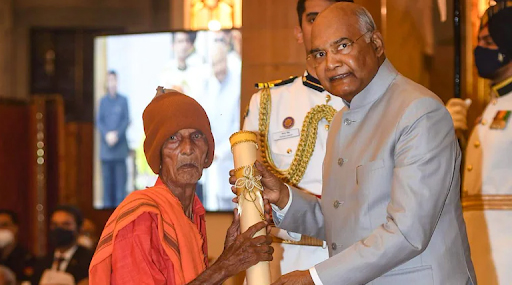
From trying to save our surroundings to providing education for people around us and from almost losing hope on life to winning a Padma Shri award, all of them went through a lot of trouble to reach this day and win the award. The thing that sets these four award winners apart is that they are normal people, not famous actors or sports persons or politicians. They didn't do all the amazing things that they did for money or fame !! It was purely their selflessness which drove them to do all those generous deeds.
- Jaisheta Reddy, XI

The Grand Budapest Hotel is a 2014 comedy drama film written by Wes Anderson. Ralph Fieneas leads a seventeen-actor ensemble cast as Monsieur Gastuve H, famed concierge of a twentieth century mountain side resort in the fictional country of Zubrowka. When Gustave is framed for the murder of a wealthy dowager, he and his recently befriended protege Zero (Tony Revolori) embark on a quest for fortune and a priceless renaissance painting,’ the boy with apple’, amidst the backdrop of a encroaching fascist regime.
The movie begins in a cemetery in the nation of Zubrowka, where a young girl visits the shrine of a renowned writer referred to simply as “author”,reading his most cherished book: The Grand Budapest Hotel. Written in 1985, it examines his 1968 stay in a once-grand, then-drab hotel. There he meets its owner Zero Moustafa, who at dinner tells his rags-to-riches story.
Wes Anderson’s eccentric hit The Grand Budapest Hotel is a unique piece of cinema. It is told as a story within a story within a story and at first the themes of the movie seem to have no meaning other than whimsy. However as the movie progresses it struggles with deeper issues regarding history and how we in the present remember it. This is the theme of the movie: preservation of the past. Mr. Gustave preserved a dying “world”, Zero preserved the memories of his wife and Gustave in the hotel, the author preserved Zero's story and so on.
- Harshitha Gurram, XI
Pandit Jawaharlal Nehru, our first Prime Minister, had rightly said “To be secure on Land, we must be Supreme at Sea”. This famous quote always reminds us that we are primarily a Maritime Nation. A strong navy is an important element of every Maritime Nation.
The military forces, known as the Indian Armed Forces consists of three professional uniformed services:
The Indian Army, The Indian Navy, and The Indian Air Force.
The Indian Armed Forces are under the management of the Ministry of Defense of the Government of India. Over 1.4 million personnel are active in the Armed Forces which makes it the second-largest military force in the world. It is a matter of pride that we also have the world’s largest volunteer army.
शं नो वरुणः is the motto of the Indian Navy meaning 'May the Lord of Water be auspicious unto us'
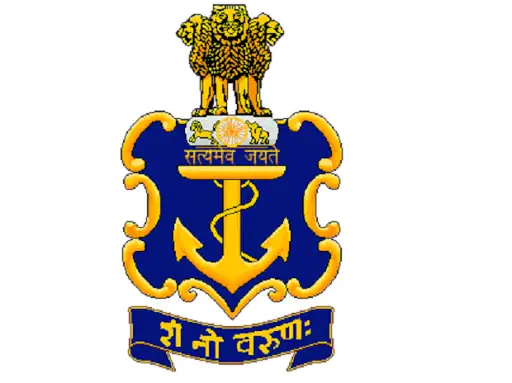
The Indian Navy is the naval branch of the Indian Armed Forces. The President of India is the supreme commander of the Indian Navy. While the President of India serves as the Supreme Commander, the organizational structure of the Indian Navy is headed by the Chief of Naval Staff, who holds the rank of Admiral. It operates significantly in the Persian Gulf Region and the Horn of Africa to the Strait of Malacca, and routinely conducts anti-piracy operations and partners with other navies in the region. It also conducts routine two-to-three-month long deployments in the South and East China seas as well as in the Western Mediterranean Seas simultaneously.
The naval body established in the 17th century has multiple responsibilities.
The primary objective of the navy is to safeguard the nation’s maritime borders. They also in coordination with other Armed Forces of the Union, act to deter or detect any threats or aggression against territory, people, or maritime interests of India, both in war and peace. Indian Navy serves as a connection between the countries through goodwill visits and humanitarian missions, including disaster relief.
Maritime forces, because of their quick mobilisation, are especially useful in the early stages of a crisis for providing relief material, first aid and succor in coastal areas. One of the biggest challenges after encountering a natural disaster is the supply of food, water and relief material. Maritime forces act a s savior in such crisis time by providing an immediate helping hand.
The Indian Navy has a specialized training command which is responsible for organization, conduct and overseeing of all basic, professional and specialist training throughout the Navy.
The Indian Navy has till date carried out hundreds of missions and has safeguarded our nation’s security. It is in their regard that 4th December every year is celebrated as The Indian Navy Day. We have to be grateful for their efforts to keep us safe in our homes !!
- Atharva Havale, XII